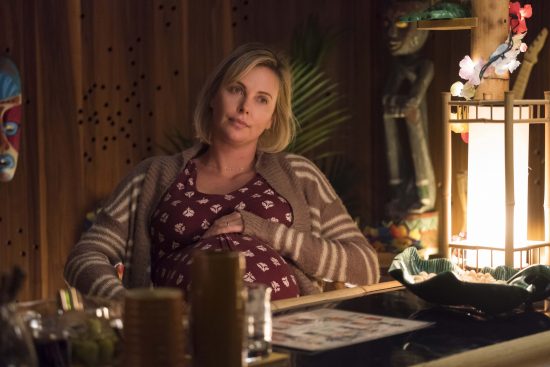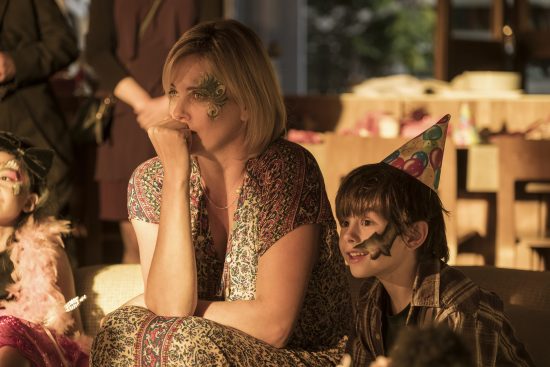If you’re tired of seeing unrealistic big-screen portrayals of perfect families, new film Tully is an eye-opener. Tackling complex themes around motherhood, gender roles and maternal mental health, it delivers some stark home truths about being a mum.

In Tully, Charlize Theron stars as Marlo, a shattered mum who struggles to cope when her new baby is born. Full of bitter-sweet moments, it’s a movie that will make you laugh and cry.
It’s also testament to the fact that the path of motherhood doesn’t always run smoothly. But there are ways to help you find your way – and support if you need it.
As a new mum, life revolves around the needs and demands of your baby – and that can be exhausting and challenging.
Ask for help and take it when it’s offered.
Once she’s home with baby Mia, Marlo’s life is completely consumed with parenting her three children in a sleep-deprived blur. At breaking point, she finally considers her brother’s gift of a night nanny.
We might not all want, or be able to, go down the night nanny route but the point is: ask for help when you need it and take it when it’s offered. Your baby’s health and well-being is important; but so is yours.

Indeed, one of the big themes in Tully is postnatal mental health. “The circumstances are different for everyone but the struggle of being a new parent is real,” says Charlize Theron about her role in the movie. “It’s exhausting and nothing can prepare you for it. You can’t know until you’re actually in it.
“It can sometimes feel like you are in a dark tunnel and there really is no light at the end of it. The movie is very honest about the things you go through as a new parent but don’t necessarily feel comfortable talking about.”
10-20% of women develop a mental illness during pregnancy or within the first year after having a baby.
Sadly, between 10-20% of women develop a mental illness during pregnancy or within the first year after having a baby. And there is a huge range of conditions that can affect new mums.
While one in 10 women experience postnatal depression (PND); in Tully, Marlo suffers from postpartum psychosis – a rare but serious condition that requires urgent and specialist attention.
It’s now also recognised that PND can be experienced by dads, sometimes called paternal depression.
With the prevalence of mental health issues among new parents, the recent news that the NHS will receive £23 million in funding to ensure that all pregnant women and new mums are able to access specialist perinatal community mental health support by April 2019 is a positive step forward.
And raising awareness about mental health issues will continue to be a huge focus for us (see box below). From our #HiddenHalf campaign to get postnatal mental health out of hiding to our brilliant Parents in Mind peer support project, we’re making sure new mums and dads get the support they need and tackling the stigma around mental health.
While experiencing some form of mental health issue is common among new mums; it should never be considered the norm or ‘part and parcel’ of motherhood. No mum should struggle on because she believes ‘this is just the way it is’.

Motherhood is a rollercoaster but some emotions, such as feeling persistently low or detached, or having obsessive or irrational thoughts, shouldn’t be dismissed or ignored.
Tully highlights what can happen when a new mum doesn’t get the support she needs. Don’t ever feel you have to hide how you’re feeling or pretend that everything’s fine if it’s not. Talk to someone and share those thoughts because you’re definitely not the first – or only – mum to feel that way.
Tully is in cinemas now
We have lots of information about mental health and ways to seek support on our website.
Find out about our #HiddenHalf campaign and how we’re campaigning for better six week postnatal check-ups so that all new mothers with a mental health problem get the help they need. You can show politicians that this issue matters by taking a few minutes to email your MP.
Read about our Parents in Mind project, which trains local volunteers to support women in their community experiencing emotional health difficulties in pregnancy and after birth.